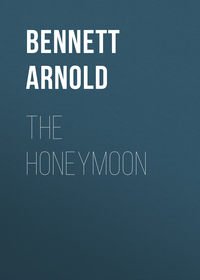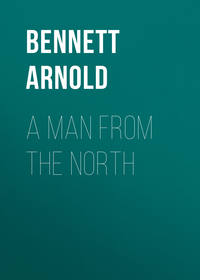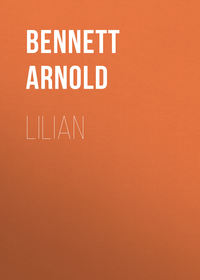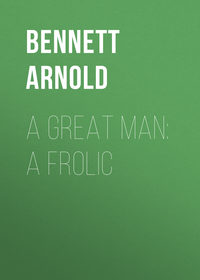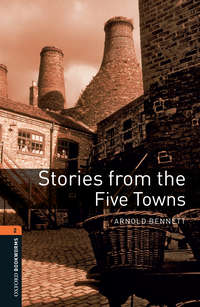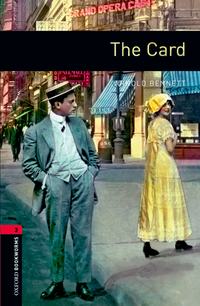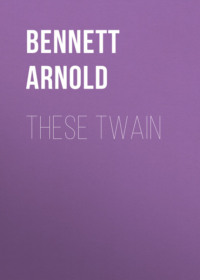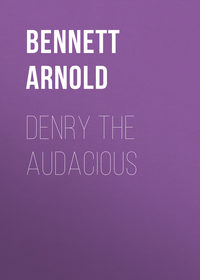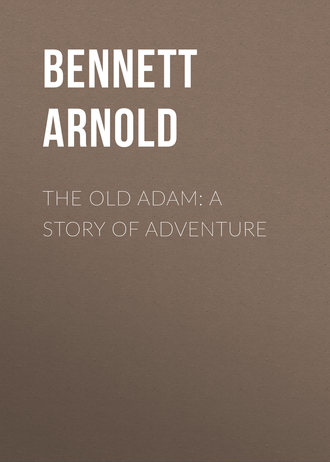 полная версия
полная версияThe Old Adam: A Story of Adventure
The curtain rose, and, as it did so, a thunderous, crashing applause of greeting broke forth-applause that thrilled and impressed and inspired; applause that made every individual in the place feel right glad that he was there. For the curtain had risen on the gigantic attraction which many members of the audience were about to see for the fifth time that week; in fact, it was rumoured that certain men of fashion, whose habit was to refuse themselves nothing, had attended every performance of the gigantic attraction since the second house on Monday.
The scene represented a restaurant of quiet aspect, into which entered a waiter bearing a pile of plates some two feet high. The waiter being intoxicated, the tower of plates leaned this way and that as he staggered about, and the whole house really did hold its breath in the simultaneous hope and fear of an enormous and resounding smash. Then entered a second intoxicated waiter, also bearing a pile of plates some two feet high; and the risk of destruction was thus more than doubled-it was quadrupled, for each waiter, in addition to the risks of his own inebriety, was now subject to the dreadful peril of colliding with the other. However, there was no catastrophe.
Then arrived two customers, one in a dress suit and an eye-glass, and the other in a large violet hat, a diamond necklace, and a yellow satin skirt. The which customers, seemingly well used to the sight of drunken waiters tottering to and fro with towers of plates, sat down at a table and waited calmly for attention. The popular audience, with that quick mental grasp for which popular audiences are so renowned, soon perceived that the table was in close proximity to a lofty sideboard, and that on either hand of the sideboard were two chairs, upon which the two waiters were trying to climb in order to deposit their plates on the top-most shelf of the sideboard. The waiters successfully mounted the chairs, and successfully lifted their towers of plates to within half an inch of the desired shelf, and then the chairs began to show signs of insecurity. By this time the audience was stimulated to an ecstasy of expectation, whose painfulness was only equalled by its extreme delectability. The sole unmoved persons in the building were the customers awaiting attention at the restaurant table.
One tower was safely lodged on the shelf. But was it? It was not! Yes? No! It curved; it straightened; it curved again. The excitement was as keen as that of watching a drowning man attempt to reach the shore. It was simply excruciating. It could not be borne any longer, and when it could not be borne any longer, the tower sprawled irrevocably, and seven dozen plates fell in a cascade on the violet hat, and so, with an inconceivable clatter, to the floor. Almost at the same moment the being in the dress suit and the eye-glass-becoming aware of the phenomena-slightly unusual even in a restaurant, dropped his eye-glass, turned round to the sideboard, and received the other waiter's seven dozen plates in the face and on the crown of his head.
No such effect had ever been seen in the Five Towns, and the felicity of the audience exceeded all previous felicities. The audience yelled, roared, shrieked, gasped, trembled, and punched itself in a furious passion of pleasure. They make plates in the Five Towns. They live by making plates. They understand plates. In the Five Towns a man will carry not seven but twenty-seven dozen plates on a swaying plank for eight hours a day, up steps and down steps, and in doorways and out of doorways, and not break one plate in seven years! Judge, therefore, the simple but terrific satisfaction of a Five Towns' audience in the hugeness of the calamity. Moreover, every plate smashed means a demand for a new plate and increased prosperity for the Five Towns. The grateful crowd in the auditorium of the Empire would have covered the stage with wreaths if it had known that wreaths were used for other occasions than funerals; which it did not know.
Fresh complications instantly ensued which cruelly cut short the agreeable exercise of uncontrolled laughter. It was obvious that one of the waiters was about to fall. And in the enforced tranquillity of a new dread, every dyspeptic person in the house was deliciously conscious of a sudden freedom from indigestion, due to the agreeable exercise of uncontrolled laughter, and wished fervently that he could laugh like that after every meal. The waiter fell; he fell through the large violet hat and disappeared beneath the surface of a sea of crockery. The other waiter fell too, but the sea was not deep enough to drown a couple of them. Then the customers, recovering themselves, decided that they must not be outclassed in this competition of havoc, and they overthrew the table and everything on it, and all the other tables, and everything on all the other tables. The audience was now a field of artillery which nothing could silence. The waiters arose, and, opening the sideboard, disclosed many hundreds of unsuspected plates of all kinds, ripe for smashing. Niagaras of plates surged on to the stage. All four performers revelled and wallowed in smashed plates. New supplies of plates were constantly being produced from strange concealments, and finally the tables and chairs were broken to pieces, and each object on the walls was torn down and flung in bits on to the gorgeous general debris, to the top of which clambered the violet hat, necklace, and yellow petticoat, brandishing one single little plate, whose life had been miraculously spared. Shrieks of joy in that little plate played over the din like lightning in a thunder-storm. And the curtain fell.
It was rung up fifteen times, and fifteen times the quartette of artists, breathless, bowed in acknowledgment of the frenzied and boisterous testimony to their unique talents. No singer, no tragedian, no comedian, no wit, could have had such a triumph, could have given such intense pleasure. And yet none of the four had spoken a word. Such is genius!
At the end of the fifteenth call the stage-manager came before the curtain and guaranteed that two thousand four hundred plates had been broken.
The lights went up. Strong men were seen to be wiping tears from their eyes. Complete strangers were seen addressing each other in the manner of old friends. Such is art!
"Well, that was worth a bob, that was!" muttered Edward Henry to himself. And it was. Edward Henry had not escaped the general fate. Nobody, being present, could have escaped it. He was enchanted. He had utterly forgotten every care.
"Good evening, Mr. Machin," said a voice at his side. Not only he turned, but nearly every one in the vicinity turned. The voice was the voice of the stout and splendid managing director of the Empire, and it sounded with the ring of authority above the rising tinkle of the bar behind the Grand Circle.
"Oh! How d'ye do, Mr. Dakins?" Edward Henry held out a cordial hand, for even the greatest men are pleased to be greeted in a place of entertainment by the managing director thereof. Further, his identity was now recognised.
"Haven't you seen those gentlemen in that box beckoning to you?" said Mr. Dakins, proudly deprecating complimentary remarks on the show.
"Which box?"
Mr. Dakins' hand indicated the stage-box. And Henry, looking, saw three men, one unknown to him; the second, Robert Brindley, the architect, of Bursley; and the third, Dr. Stirling.
Instantly his conscience leapt up within him. He thought of rabies. Yes, sobered in the fraction of a second, he thought of rabies. Supposing that, after all, in spite of Mr. Long's muzzling order, as cited by his infant son, an odd case of rabies should have lingered in the British Isles, and supposing that Carlo had been infected! Not impossible! Was it providential that Dr. Stirling was in the auditorium?
"You know two of them?" said Mr. Dakins.
"Yes."
"Well, the third's a Mr. Bryany. He's manager to Mr. Seven Sachs." Mr. Dakins' tone was respectful.
"And who's Mr. Seven Sachs?" asked Edward Henry absently. It was a stupid question.
He was impressively informed that Mr. Seven Sachs was the arch-famous American actor-playwright, now nearing the end of a provincial tour which had surpassed all records of provincial tours, and that he would be at the Theatre Royal, Hanbridge, next week. Edward Henry then remembered that the hoardings had been full of Mr. Seven Sachs for some time past.
"They keep on making signs to you," said Mr. Dakins, referring to the occupants of the stage-box.
Edward Henry waved a reply to the box.
"Here! I'll take you there the shortest way," said Mr. Dakins.
II"Welcome to Stirling's box, Machin!" Robert Brindley greeted the alderman with an almost imperceptible wink. Edward Henry had encountered this wink once or twice before; he could not decide precisely what it meant; it was apt to make him reflective. He did not dislike Robert Brindley, his habit was not to dislike people; he admitted Brindley to be a clever architect, though he objected to the "modern" style of the fronts of his houses and schools. But he did take exception to the man's attitude towards the Five Towns, of which, by the way, Brindley was just as much a native as himself. Brindley seemed to live in the Five Towns like a highly cultured stranger in a savage land, and to derive rather too much sardonic amusement from the spectacle of existence therein. Brindley was a very special crony of Stirling's, and had influenced Stirling. But Stirling was too clever to submit unduly to the influence. Besides, Stirling was not a native; he was only a Scotchman, and Edward Henry considered that what Stirling thought of the district did not matter. Other details about Brindley which Edward Henry deprecated were his necktie, which, for Edward Henry's taste, was too flowing, his scorn of the "Pianisto" (despite the man's tremendous interest in music), and his incipient madness on the subject of books-a madness shared by Stirling. Brindley and the doctor were forever chattering about books, and buying them.
So that, on the whole, Dr. Stirling's box was not a place where Edward Henry felt entirely at home. Nevertheless, the two men, having presented Mr. Bryany, did their best, each in his own way, to make him feel at home.
"Take this chair, Machin," said Stirling, indicating a chair at the front.
"Oh, I can't take the front chair!" Edward Henry protested.
"Of course you can, my dear Machin," said Brindley sharply. "The front chair in a stage-box is the one proper seat in the house for you. Do as your doctor prescribes."
And Edward Henry accordingly sat down at the front, with Mr. Bryany by his side; and the other two sat behind. But Edward Henry was not quite comfortable. He faintly resented that speech of Brindley's. And yet he did feel that what Brindley had said was true, and he was indeed glad to be in the front chair of a brilliant stage-box on the grand tier, instead of being packed away in the nethermost twilight of the Grand Circle. He wondered how Brindley and Stirling had managed to distinguish his face among the confusion of faces in that distant obscurity; he, Edward Henry, had failed to notice them, even in the prominence of their box. But that they had distinguished him showed how familiar and striking a figure he was. He wondered, too, why they should have invited him to hobnob with them. He was not of their set. Indeed, like many very eminent men, he was not to any degree in anybody's set. Of one thing he was sure, – because he had read it on the self-conscious faces of all three of them, – namely, that they had been discussing him. Possibly he had been brought up for Mr. Bryany's inspection as a major lion and character of the district. Well, he did not mind that; nay, he enjoyed that. He could feel Mr. Bryany covertly looking him over. And he thought: "Look, my boy! I make no charge." He smiled and nodded to one or two people who with pride saluted him from the stalls. It was meet that he should be visible there on that Friday night!
"A full house!" he observed, to break the rather awkward silence of the box, as he glanced round at the magnificent smoke-veiled pageant of the aristocracy and the democracy of the Five Towns crowded together, tier above gilded tier, up to the dim roof where ragged lads and maids giggled and flirted while waiting for the broken plates to be cleared away and the moving pictures to begin.
"You may say it!" agreed Mr. Bryany, who spoke with a very slight American accent. "Dakins positively hadn't a seat to offer me. I happened to have the evening free. It isn't often I do have a free evening. And so I thought I'd pop in here. But if Dakins hadn't introduced me to these gentlemen, my seat would have had to be a standing one."
"So that's how they got to know him, is it?" thought Edward Henry.
And then there was another short silence.
"Hear you've been doing something striking in rubber shares, Machin?" said Brindley at length.
Astonishing how these things got abroad!
"Oh, very little, very little!" Edward Henry laughed modestly. "Too late to do much! In another fortnight the bottom will be all out of the rubber market!"
"Of course I'm an Englishman-" Mr. Bryany began.
"Why 'of course'?" Edward Henry interrupted him.
"Hear! Hear! Alderman. Why 'of course'?" said Brindley approvingly, and Stirling's rich laugh was heard. "Only it does just happen," Brindley added, "that Mr. Bryany did us the honour to be born in the district."
"Yes. Longshaw," Mr. Bryany admitted, half proud and half apologetic, "which I left at the age of two."
"Oh, Longshaw!" murmured Edward Henry with a peculiar inflection, which had a distinct meaning for at least two of his auditors.
Longshaw is at the opposite end of the Five Towns from Bursley, and the majority of the inhabitants of Bursley have never been to Longshaw in their lives, have only heard of it, as they hear of Chicago or Bangkok. Edward Henry had often been to Longshaw, but, like every visitor from Bursley, he instinctively regarded it as a foolish and unnecessary place.
"As I was saying," resumed Mr. Bryany, quite unintimidated, "I'm an Englishman. But I've lived eighteen years in America, and it seems to me the bottom will soon be knocked out of pretty nearly all the markets in England. Look at the Five Towns!"
"No, don't, Mr. Bryany!" said Brindley. "Don't go to extremes."
"Personally, I don't mind looking at the Five Towns," said Edward Henry. "What of it?"
"Well, did you ever see such people for looking twice at a five-pound note?"
Edward Henry most certainly did not like this aspersion on his native district. He gazed in silence at Mr. Bryany's brassy and yet simple face, and did not like the face either.
And Mr. Bryany, beautifully unaware that he had failed in tact, continued: "The Five Towns is the most English place I've ever seen, believe me! Of course it has its good points, and England has her good points; but there's no money stirring. There's no field for speculation on the spot, and as for outside investment, no Englishman will touch anything that really is good." He emphasised the last three words.
"What d'ye do yeself, Mr. Bryany?" inquired Dr. Stirling.
"What do I do with my little bit?" cried Mr. Bryany. "Oh, I know what to do with my little bit. I can get ten per cent. in Seattle, and twelve to fifteen in Calgary, on my little bit; and security just as good as English railway stock-and better."
The theatre was darkened, and the cinematograph began its reckless twinkling.
Mr. Bryany went on offering to Edward Henry, in a suitably lowered voice, his views on the great questions of investment and speculation; and Edward Henry made cautious replies.
"And even when there is a good thing going at home," Mr. Bryany said, in a wounded tone, "what Englishman'd look at it?"
"I would," said Edward Henry with a blandness that was only skin-deep, for all the time he was cogitating the question whether the presence of Dr. Stirling in the audience ought or ought not to be regarded as providential.
"Now, I've got the option on a little affair in London," said Mr. Bryany, while Edward Henry glanced quickly at him in the darkness, "and can I get anybody to go into it? I can't."
"What sort of a little affair?"
"Building a theatre in the West End."
Even a less impassive man than Edward Henry would have started at the coincidence of this remark. And Edward Henry started. Twenty minutes ago he had been idly dreaming of theatrical speculation, and now he could almost see theatrical speculation shimmering before him in the pale shifting rays of the cinematograph that cut through the gloom of the mysterious auditorium.
"Oh!" And in this new interest he forgot the enigma of the ways of Providence.
"Of course, you know, I'm in the business," said Mr. Bryany. "I'm Seven Sachs's manager." It was as if he owned and operated Mr. Seven Sachs.
"So I heard," said Edward Henry, and then remarked with mischievous cordiality: "And I suppose these chaps told you I was the sort of man you were after. And you got them to ask me in, eh, Mr. Bryany?"
Mr. Bryany gave an uneasy laugh, but seemed to find naught to say.
"Well, what is your little affair?" Edward Henry encouraged him.
"Oh, I can't tell you now," said Mr. Bryany. "It would take too long. The thing has to be explained."
"Well, what about to-morrow?"
"I have to leave for London by the first train in the morning."
"Well, some other time?"
"After to-morrow will be too late."
"Well, what about to-night?"
"The fact is, I've half promised to go with Dr. Stirling to some club or other after the show. Otherwise we might have had a quiet confidential chat in my rooms over the Turk's Head. I never dreamt-" Mr. Bryany was now as melancholy as a greedy lad who regards rich fruit at arm's length through a plate-glass window, and he had ceased to be patronising.
"I'll soon get rid of Stirling for you," said Edward Henry, turning instantly towards the doctor. The ways of Providence had been made plain to Edward Henry. "I say, Doc!" But the Doctor and Brindley were in conversation with another man at the open door of the box.
"What is it?" said Stirling.
"I've come to fetch you. You're wanted at my place."
"Well, you're a caution!" said Stirling.
"Why am I a caution?" Edward Henry smoothly protested. "I didn't tell you before because I didn't want to spoil your fun."
Stirling's mien was not happy.
"Did they tell you I was here?" he asked.
"You'd almost think so, wouldn't you?" said Edward Henry in a playful, enigmatic tone. After all, he decided privately, his wife was right: it was better that Stirling should see the infant. And there was also this natural human thought in his mind: he objected to the doctor giving an entire evening to diversions away from home; he considered that a doctor, when not on a round of visits, ought to be forever in his consulting-room, ready for a sudden call of emergency. It was monstrous that Stirling should have proposed, after an escapade at the music-hall, to spend further hours with chance acquaintances in vague clubs! Half the town might fall sick and die while the doctor was vainly amusing himself. Thus the righteous layman in Edward Henry!
"What's the matter?" asked Stirling.
"My eldest's been rather badly bitten by a dog, and the missis wants it cauterized."
"Really?"
"Well, you bet she does!"
"Where's the bite?"
"In the calf."
The other man at the door having departed, Robert Brindley abruptly joined the conversation at this point.
"I suppose you've heard of that case of hydrophobia at Bleakridge?" said Brindley.
Edward Henry's heart jumped.
"No, I haven't," he said anxiously. "What is it?"
He gazed at the white blur of Brindley's face in the darkened box, and he could hear the rapid clicking of the cinematograph behind him.
"Didn't you see it in the Signal?"
"No."
"Neither did I," said Brindley.
At the same moment the moving pictures came to an end, the theatre was filled with light, and the band began to play, "God Save the King." Brindley and Stirling were laughing. And indeed, Brindley had scored, this time, over the unparalleled card of the Five Towns.
"I make you a present of that," said Edward Henry. "But my wife's most precious infant has to be cauterized, Doctor," he added firmly.
"Got your car here?" Stirling questioned.
"No. Have you?"
"No."
"Well, there's the tram. I'll follow you later. I've some business round this way. Persuade my wife not to worry, will you?"
And when a discontented Dr. Stirling had made his excuses and adieux to Mr. Bryany, and Robert Brindley had decided that he could not leave his crony to travel by tram-car alone, and the two men had gone, then Edward Henry turned to Mr. Bryany:
"That's how I get rid of the doctor, you see."
"But has your child been bitten by a dog?" asked Mr. Bryany, acutely perplexed.
"You'd almost think so, wouldn't you?" Edward Henry replied, carefully non-committal. "What price going to the Turk's Head now?"
He remembered with satisfaction, and yet with misgiving, a remark made to him, a judgment passed on him, by a very old woman very many years before. This discerning hag, the Widow Hullins by name, had said to him briefly, "Well, you're a queer 'un!"
IIIWithin five minutes he was following Mr. Bryany into a small parlour on the first floor of the Turk's Head, a room with which he had no previous acquaintance, though, like most industrious men of affairs in metropolitan Hanbridge, he reckoned to know something about the Turk's Head. Mr. Bryany turned up the gas (the Turk's Head took pride in being a "hostelry," and, while it had accustomed itself to incandescent mantles on the ground floor, it had not yet conquered a natural distaste for electricity) and Edward Henry saw a smart despatch-box, a dress suit, a trouser-stretcher, and other necessaries of theatrical business life at large in the apartment.
"I've never seen this room before," said Edward Henry.
"Take your overcoat off and sit down, will you?" said Mr. Bryany as he turned to replenish the fire from a bucket. "It's my private sitting-room. Whenever I am on my travels, I always take a private sitting-room. It pays, you know. Of course I mean if I'm alone. When I'm looking after Mr. Sachs, of course we share a sitting-room."
Edward Henry agreed lightly:
"I suppose so."
But the fact was that he was much impressed. He himself had never taken a private sitting-room in any hotel. He had sometimes felt the desire, but he had not had the "face," as they say down there, to do it. To take a private sitting-room in a hotel was generally regarded in the Five Towns as the very summit of dashing expensiveness and futile luxury.
"I didn't know they had private sitting-rooms in this shanty," said Edward Henry.
Mr. Bryany, having finished with the fire, fronted him, shovel in hand, with a remarkable air of consummate wisdom, and replied:
"You can generally get what you want if you insist on having it, even in this 'shanty.'"
Edward Henry regretted his use of the word "shanty." Inhabitants of the Five Towns may allow themselves to twit the historic and excellent Turk's Head, but they do not extend the privilege to strangers. And in justice to the Turk's Head, it is to be clearly stated that it did no more to cow and discourage travellers than any other provincial hotel in England. It was a sound and serious English provincial hotel; and it linked century to century.
Said Mr. Bryany:
"'Merica's the place for hotels."
"Yes, I expect it is."
"Been to Chicago?"
"No, I haven't."
Mr. Bryany, as he removed his overcoat, could be seen politely forbearing to raise his eyebrows.
"Of course you've been to New York?"
Edward Henry would have given all he had in his pockets to be able to say that he had been to New York, but, by some inexplicable negligence, he had hitherto omitted to go to New York, and, being a truthful person, except in the gravest crises, he was obliged to answer miserably:
"No, I haven't."
Mr. Bryany gazed at him with amazement and compassion, apparently staggered by the discovery that there existed in England a man of the world who had contrived to struggle on for forty years without perfecting his education by a visit to New York.


